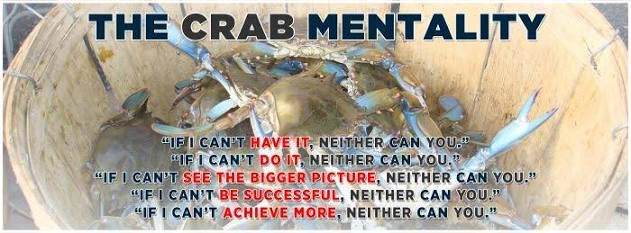MisterUptempo
Lead Service Attendant
"If so don’t like the conditions I agreed to, I have the ability to look for work elsewhere."I’m not jealous. I am empowered. If so don’t like the conditions I agreed to, I have the ability to look for work elsewhere. Unemployment is at record lows. No one is holding a gun to anyone’s head making anyone work. If you aren’t getting what was agreed to, that is a problem. If you are getting what you agreed to and it is no longer adequate, feel free to look for work elsewhere.I really don't know where you're coming from on this one.Your proof that they aren’t getting the wages they agreed to, please.Bucket of crabs, anyone?It’s been a while since I’ve worked a 40 hour work week.How soon we forget that organized labor brought us things like an 8 hour work day and 40 hour work week amongst other employee benefits.I have to wonder if Amtrak could operate more efficiently - and have more ability to dismiss employees with attitude problems (for example, some members of the dining car wait staffs that moist of us long-distance passengers have experienced all too often) if they could jettison all of their contracts with organized labor.
If employees of a privately owned business want to organized into a union for some reason, I suppose that's OK (but I have to believe top performers in any line of work don't need unions) but government employees should be not be unionized at all. I don't know what percentage of Amtrak's expenses are for labor - if it's anything like the US Postal Service I'm sure it's too high - but between artificially high (above-market) wages, and restrictive work rules, I'm not sure the unions do much to enhance the Amtrak customer experience, or to help keep fares and sleeper changes as reasonable as they could otherwise be.
An Amtrak OBS employee is not like your typical restaurant employee who works an ~8 hour shift then goes home. On the long distance trains, they can be away from home for almost a week, working +16 hour days.
But more to the point, they choose the job knowing they will be away from family. It isn’t sprung on them.
Yes, those workers were well aware that those were the terms of employment. But they accepted those terms with the understanding that they would be justly compensated for the unorthodox working conditions as well as for their labor.
Was someone promised a condition of employment they aren’t getting?
No longer being happy with the wages or working conditions you chose to accept means you need a new job, not that you are being treated unfairly.
At no point did I state, or even imply, that the OBS weren't getting their agreed upon compensation, or that the rate was somehow unfair. I merely responded to your insulting comment that OBS don't seem to possess the capacity to understand the demands of their job when they sign on to work for Amtrak. I believe they understand the terms quite clearly, and those terms include being paid a wage that reflects the unusual demands that the job entails.
With your preface that you no longer work a 40-hour week, your comment takes on an added whiff of jealousy, which prompted my "bucket of crabs" comment. If you believe you aren't being fairly compensated for your work, the remedy does not lie in denying fair pay to others.

If you find having the ability to walk away from unacceptable circumstances insulting, I have nothing else for you. 
Are you suggesting that, in all cases, if someone accepts a position at a particular wage that they should never ask for a raise, regardless of tenure or performance? I'm not talking about the Amtrak OBS, whose wages are set by a contract, the result of collective bargaining, but a typical, everyday employee, the vast majority of whom are not in unions.
Do you believe that employees shouldn't have the right to collectively bargain? Just trying to get a fix on where you are, because empowered people don't readily give up the right to sit at the negotiating table as equals of management and capital.
Last edited by a moderator:



























































